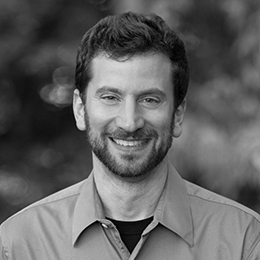It Isn’t Easy Being Green
It isn’t news that environmentalism has gone mainstream in a big way — with organic food in every grocery store, hybrid cars on every freeway, and every mass-market magazine declaring green the “new black.” More than ever before, consumers are buying into environmentalist ideology — and buying products that purport to impact nature less, in order to impact nature less.
One would think that serious environmentalists would be thrilled about this trend — thrilled that the public seems willing to take ecological marching orders and do its duty to the planet. But they aren’t: A backlash against “buying green” has arisen in environmentalist circles, with critics disparaging the new eco-consumers as “light greens,” and condemning the “Cosmo-izing of the green movement.”
Surprising? Not really. Not if one grasps the deeper meaning of environmentalism.
Most people have a mistaken view of environmentalism. They see it as a movement whose goal is to protect the environment so that we, and future generations, may continue to enjoy it. Environmentalists might call for certain sacrifices — like stern priests calling upon us to do penance for our sins — but people take their word for it that those sacrifices will turn out to be for the good of “society.” People feel virtuous in paying more for those organic blueberries and spending time washing out tin cans and nasty cloth diapers, because they see it as a sacrifice for the “greater good.” And although “going green” may demand some cost and effort, it need not — on this view — be too burdensome nor demand personal hardships that are too great.
But in fact, the goal of environmentalism is not any alleged benefit to mankind; its goal is to preserve nature untouched — to prevent nature from being altered for human purposes. Observe that whenever there is a conflict between the goals of “preserving nature” and pursuing some actual human value, environmentalists always side with nature against man. If tapping Arctic oil reserves to supply our energy needs might affect the caribou, environmentalists demand that we leave vast tracts of Arctic tundra completely untouched. If a new freeway bypass will ease traffic congestion but might disturb the dwarf wedge mussel, environmentalists side with the mollusk against man. If a “wetland” is a breeding ground for disease-carrying insects, environmentalists fight to prevent it being drained no matter the toll of human suffering.
It is simply not true that environmentalism values human well being. It demands sacrifices, not for the sake of any human good, but for the sake of leaving nature untouched. It calls for sacrifice as an end in itself.
Though environmentalists will often claim to be opposed to merely “indiscriminate” or “excessive” consumption of natural resources, their ideology actually drives them to oppose any act of altering nature for human purposes. The environmentalist goal of “preserving nature” unavoidably conflicts with the requirements of human life: Man’s basic means of survival is to reshape nature to serve his ends, to take the raw materials of his environment and use them to produce values. But this requires “touching” nature, not leaving it untouched. Even organic crops require land and water and energy; even hybrid cars are built of metal and plastic and glass, and use up fuel. All human activity, on whatever scale, violates the environmentalist injunction to “leave nature alone.”
This is why it is no surprise that environmentalist leaders would condemn “buying green” as a consumer trend. Says Michael Ableman, an organic farmer and environmental author: “The assumption that by buying anything, whether green or not, we’re solving the problem is a misperception. Consuming is a significant part of the problem to begin with.” In other words, the very act of consuming — i.e., pursuing material values in support of our lives — is a “problem.”
Environmentalists are criticizing “buying green,” because at root they are against buying anything.
Anyone who thinks that it’s easy being “green” — that “eco-chic” is consistent with the principles of environmentalism — had better think harder about the true nature of the ideology they are helping bring into power. Environmentalists’ call for minor sacrifices for the sake of some undefined “greater good” is the first stage in their call for sacrifice as such, for no human benefit whatsoever.
If environmentalists are now confident enough to start attacking “buying green” as superficial and hypocritical, we had better take them at their word and stop buying anything they have to sell, especially their poisonous ideology.


